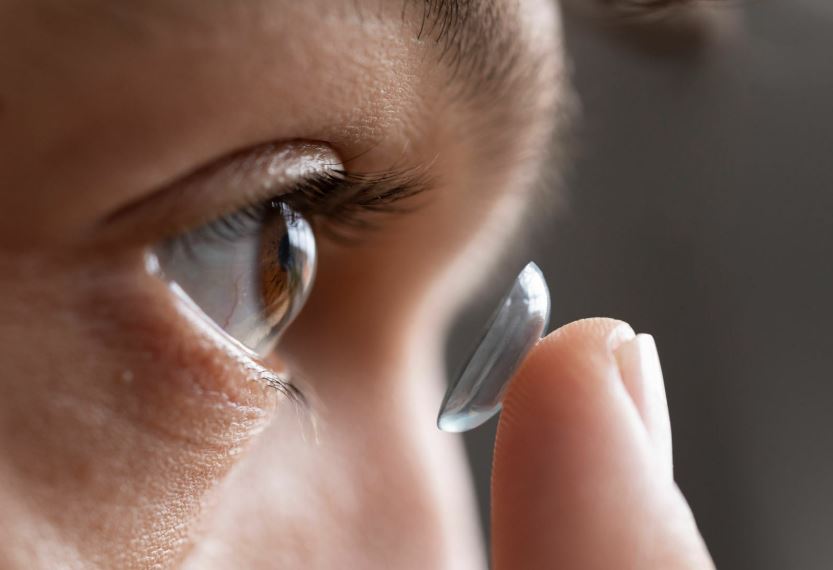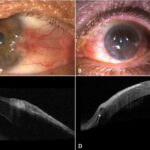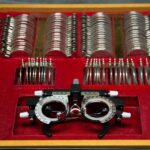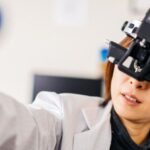Can I Wear Contacts to My Eye Appointment? We often receive queries like this and to clear your confusion, the simple answer is: yes, you can – but it depends on the nature and type of your eye appointment.

Understanding your Appointment
Let’s delve deeper into the two primary types of appointments that dictate whether you should or shouldn’t wear your contacts: A Lens Appointment and a Regular Eye Exam.
Lens Appointments
Lens Appointments are periodically conducted to assess the comfort, performance, and clarity provided by your current glasses or contact lenses. This type of check-up determines if there’s a need for prescription updates or even a different brand or type of contact.
Regular Eye Exam
Alternatively, a Regular Eye Exam is an appointment typically performed annually or bi-annually, which focuses on evaluating your overall eye health and vision. This exam aids in detecting any changes or possible early signs of eye diseases.
Regular Eye Exams vs Lens Appointments
Depending on the nature of your appointment, there are different steps to take.
For a Regular Eye Exam, the ideal protocol is to arrive at your appointment without wearing your contacts. This approach enables your optometrist to conduct an in-depth assessment of your eyes and their health, observing for any signs like redness, irritation, excessive watering, or other conditions that may be impairing your vision.
However, we understand that contacts might be necessary for your vision before your appointment. If this is the case, make sure to remove your contacts approximately two hours before your examination, to let your eyes relax but, here’s a significant rule to remember.
Once you have removed your contacts approximately two hours before your Regular Eye Exam, they should not be worn again since taking them off might attract harmful irritants that may compromise the clean and restful state of your eyes after the examination. In this case, a pair of spectacles or a new pair of contacts is advised for vision.
If your eye appointment is a Lens Appointment, by all means, arrive wearing your contacts! During this exam, the optometrist will evaluate how well your contacts fit, their comfort in your eye, and the clarity of vision they offer.
General Tips on How To Prepare For Your Appointment
1. Bring a list of any medications you’re currently taking, as well as any eye drops or other treatments you’re using. It’s important to let your eye doctor know these, as they may affect your vision or interact with any new treatments your eye doctor may prescribe. By bringing a list, you can ensure that you don’t overlook any important information.
2. If you wear glasses or contacts, it’s important to bring them to your eye appointment so that your eye doctor can assess your vision with them. This can help your eye doctor determine whether to adjust your prescription or prescribe a different type of lens.
3. Make a list of any symptoms you’re experiencing, such as blurry vision, eye pain, or redness. If you’re experiencing any symptoms related to your eyes, it’s important to let your eye doctor know. By making a list of your symptoms, you can ensure that you don’t forget anything important during your appointment. This can help your eye doctor diagnose accurately and recommend appropriate treatment.
4. Prepare to discuss your medical history with your eye doctor, including any previous eye injuries, surgeries, or vision problems. Your medical history can provide important context for your current eye health and any symptoms you may be experiencing. This can help your eye doctor diagnose accurately and recommend appropriate treatment.
5. If you have any questions or concerns during your eye appointment, don’t hesitate to ask your eye doctor. They are there to help you and ensure that your eyes stay healthy. By being proactive and asking questions, you can ensure a productive and informative appointment.
Remember: Carry a Backup!
No matter the appointment type, we highly recommend carrying a pair of backup glasses or spare contacts to ensure optimal vision post-appointment and avoid any potential, unforeseen expenses.
We hope this post clarifies any confusion, but if you’re still unsure about what to do, always reach out to your eye care provider.




